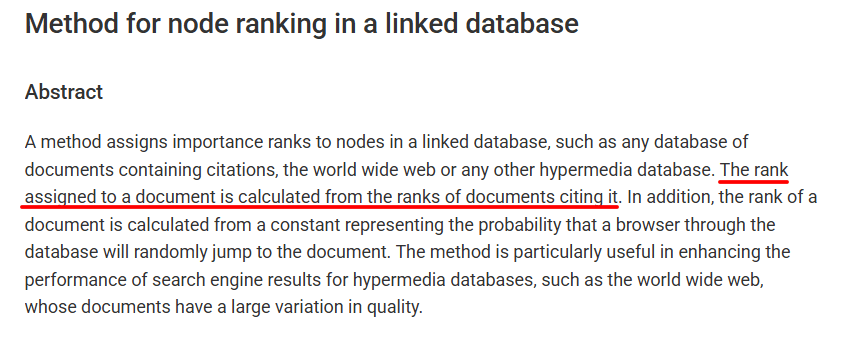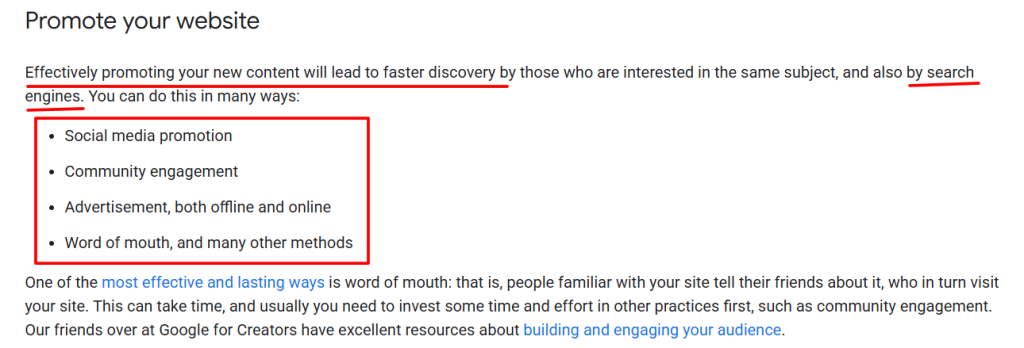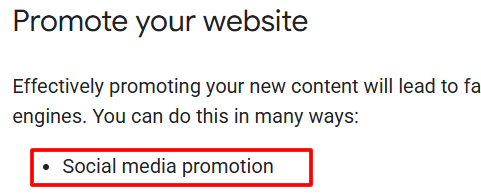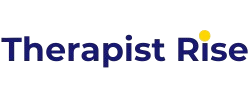Off-page SEO is the second most important part of any therapist website SEO campaign after On-page SEO. Off-page SEO is done to influence all those ranking signals which are outside the website. Through this guide you will get complete information (What, Why, and How) about Off-page SEO for private practice therapist website.
What is Off-page SEO for therapists?
Off-page SEO means all those website optimization activities that are done outside the therapist website to increase its search presence. These activities are creating backlinks, getting brand-mentions, increasing online reputation signals, increasing EEAT, improving social signals, and many other techniques.
Just like On-page SEO helps optimizing the content for various queries and keywords, Off-page SEO is helps to build website authority and trustworthiness.
To understand the concept of Off-page SEO much better let’s first understand how Google and other search engines determine that a random website is appropriate to be shown in their search results. Because there is no human way to tell the search engines that yes this website is trusted and helpful for your users , and you should rank it in your search results page. So how the search engine evaluates that a random website will be good fit for the users query? Let’s uncover this.
There are millions of websites on the world wide web. Some are good, some are bad. Some are trusted and some are not. In the same way, Google doesn’t know that your counselling website is trusted. And it ranks only trusted and helpful websites in their search results for a query. There has to be some way to show search engines that your website is legit and trustworthy. To determine the trustworthiness of a website Google uses various signals to determine the trustworthiness of a website. One such signal is External links.
Google uses links as a ranking signal to determine the trustworthiness of a website. Google in its SEO starter guide says that external links help establish trustworthiness of a website.

Google uses a ranking system called as PageRank to determine the rank of a webpage. PageRank is an algorithm developed by Google to understand the importance of a website. Links play an important role in determining the PageRank of a website. Rank of a webpage is determined by how many other quality websites are linking to it.

This is one part of how Google search engines understand the trustworthiness of a website. But Off-page SEO don’t just stop at links. There are other parts to it also. Let’s have a look at them too.
Apart from external links Google recommends to promote your website on other platforms like social media, forums, run advertisement, word of mouth, etc. This helps search engine bots to discover your content faster. Promoting your website on such platforms will help your website to gain online visibility faster.

When Google bots will see that your website is being mentioned and visited outside of their search results directly, that will send a positive trust signal to them considering your therapist website as a trusted resource.
Also, like I mentioned above Google and other search engines are algorithms. They can’t differentiate between websites in general. They rely on several ranking signals to determine the trustworthiness of a website.
In a profession like mental health therapy, trustworthiness value is much more important. Mental health therapy comes under Your Money or Your Life (YMYL) category.
This is a categorization provided by Google for websites where health, safety of people, well-being of society, and finance is involved. In such niches, Google doesn’t rank any random website on their search results. Google give more weight to those websites which have a strong E-E-A-T (Experience, Expertise, Authoritativeness, and Trustworthiness).

There are three components of E-E-A-T. These are Who, How, and Why. For Off-page SEO, Who part of E-E-A-T is we what we focus on.

When you post about yourself and your website on social media platforms, popular high PageRank forums, Youtube, etc. you satisfy the “Who” part of E-E-A-T.
So, when a therapist website is optimized for gaining authority and trustworthiness by search engines, it is called as Off-page SEO.
Why to do Off-page SEO for therapy website?
As I mentioned above Google and other search engines are algorithms. They don’t understand the language of humans. Like a human who can tell which is a trusted person or business, search engine algorithms doesn’t have such wisdom to say that said website is trusted. They rely on signals to determine the authority and trust of a website.
You are in a profession where trust is the most important factor. To let them trust your therapist website and show that you are a reliable, valid business these Off-page SEO strategies are applied on your website. These Off-page SEO techniques help search bots to determine the trustworthiness of your website.
When the search bots will identify that your private practice counselling website has got authoritative backlinks from health websites, mentions on relevant forums and social media, podcasts, etc. they will consider your website as authoritative.
There are various methods and techniques that are applied to help bots show trustworthiness of your website. In the next part we will see those methods.
How to do Off-page SEO for therapist website?
Now you have understand what is Off-page SEO and why it is important. The next part of the guide is to understand how to implement Off-page SEO strategies practically for your therapy counselling website.
In this section, you will learn about all those methods to increase trust and authority of your psychotherapy website.
1. Citations
Citations are mentions of your therapist website in various business and niche related directories. There are business directories which allows you to list your business on their websites. Sometimes they automatically add your business details to their platforms.
Common popular business directors for therapists are Google Business Profile, Yelp, Psychology Today, Therapist Locator, Therapy Route, etc.
When your website get listed in these directories, these act as online citations. You can consider them as reference to your business. When doing Off-page of a local therapist website, building citations is must. They not only works as references to search engines but also helps in building your brand entity.
One important thing while building citations is keeping the name, address, and phone number of the business same. This is called as NAP consistency.
This is because search engines are algorithms. When they will see your business listed in several business directories with different business details, the algorithm will get confused. They will be unable to determine the correct business details of your clinic. When this will happen, your rankings in your local area will see a downgrade.
Having consistent NAP across all the business directories is very crucial for a perfect local SEO strategy. Also make sure to include different description of your business in the listings. Don’t keep it same everywhere.
Citations also help in ranking of your Google Business Profile. When you build local citations with consistent NAP, you will see improvement in the rankings of your GBP in the local map pack of your city.
To find business directories for your therapy business clinic, you can use these Google modifiers listed below:
| Purpose | Query |
|---|---|
| Find therapist directories in general | therapist directory site:.com (try with .org, .net, .us, .uk, etc) |
| Find therapist directories by country | therapist directory Australia or counsellor directory UK |
| Search for mental health listings | “mental health directory” OR “psychology directory” |
| Find business directories accepting listings | “add your practice” OR “submit your site” “therapy” |
| Look for specific therapy types | “trauma therapist” directory OR “relationship therapist” directory |
| Search by audience | “find a therapist” site:.org OR “find a counsellor” site:.edu |
| Broaden to professional associations | “psychology association” “member directory” |
| Look for high-quality directories | “therapy directory” intitle:”submit” OR inurl:”list-your-practice” |
Important thing to keep in mind is list your business in those directories which are legit, have traffic and are relevant to your practice.
2. Backlinks
Backlinks are links coming from other websites to your website. As you know backlinks help build trustworthiness, so building good quality links is essential. You already learned about PageRank. A good backlink from high PageRank website is more powerful than taking several backlinks from low authority websites. These websites have already gained authority and having backlinks from high PageRank websites will help build your own PageRank and authority.
For a local private practice counselling website, the best links to start from are Local Chamber of Commerce, Local news websites, Local Events/Festival websites, Local Sponsorships, Partnership with other local non-competing businesses. These websites are regularly mentioned in local newspapers, media publication houses, and influencers. This helps them build authority.
Also, not just high authority, these websites are local for your area, which will help build local relevance of your therapy website. Whenever someone will search for therapist near me or therapy + city, these local links will help search engines determine that your website is suitable for that local query.
After these local links you can move to other high authority websites which are related to your practice and ask for Guest posts or niche edits on them. Guest posts are those posts which you as an author publish on other high authority niche relevant websites and niche edit links are those links which a publisher include in one of their posts. One important aspect of niche edits is that it is mainly given around an anchor text with relevant keyword to your therapist website.
There are various ways by which you can find such high authority websites which accepts guest post. One way is to use SEO tools like Ahrefs or Semrush to find websites which are related to your topic and the second way is to use different Google search modifiers to find websites which accepts guest posts. These modifiers are:
| Goal | Example Google Search Modifier |
|---|---|
| Find blogs accepting guest posts from private practice professionals | “write for us” “private practice” |
| Find mental health practice blogs | “guest post” “therapy practice” OR “private practice therapy” |
| Search for wellness business guest posts | “submit guest post” “wellness business” |
| Entrepreneur or small business angle | “write for us” “small business” OR “solo entrepreneur” OR “service provider” |
| Target blogs for health professionals | “write for us” “health professional” OR “counsellor” |
You can even use social media platform like Pinterest to find websites and blogs which are relevant to your practice.
When you website will get a backlink from such high authority websites, some link juice will flow from their website to yours, helping your therapist website gain PageRank.
I have a full in-detail guide on how to build backlinks for a therapist website. You can check that for an in-depth information.
3. Brand mentions
Like you read above, Google doesn’t only rely on links to understand the trustworthiness of a website. There are other signals Google search bot looks at. One of them is Brand mentions.
Brand mentions are those references when your business is mentioned on media publications, podcasts, news, etc. It can be linked to your website or unlinked but in both ways they are beneficial for your therapy website.
The internet is very big and scattered. There are millions of websites live online. When many of these websites which are also high in authority mentions you on their website it sends a positive signal to Google about your business.
For example – You can start a podcast on Spotify and syndicate it to other podcast platforms, get mentioned on local media websites for organizing an event in your clinic, etc. This will spread your business name across many platforms.
Brand mentions are like signals that tells search bots that you are a genuine business having a strong online presence. This builds up your authority and trustworthiness in the eyes of Google and other search engines. Brand mentions helps your business to become a separate brand entity.
By being mentioned on many platforms, you gain E-E-A-T signals for your therapy business and consequently your website.
When your website will be mentioned on popular media platforms, podcasts, news, relevant blogs, and forum discussions, it will send signals to Google that your business is reputable and popular among the community.
While doing Off-page SEO for therapists apart from backlinks, brand mentions are the second most important aspect to look at. It not only helps in ranking but build your business as a separate business entity.
4. Social media promotion
Social media promotion means promoting your website on social media platforms. Google recommends to use social media to promote a website.

Promoting your psychology website on social media is helpful in many ways for your Off-page SEO strategy. It will help search engines to discover your website faster and improve the indexing rate. Promoting your website on social media platforms like Facebook, X, Instagram, Pinterest, etc. will not only help in your website be discoverable fast by search engines but also help in building your “Who” part of E-E-A-T.
You can use social media to drive direct traffic to your website too. This you can do by posting images/quotes/videos of debunking misconceptions and asking the users to visit website for more information.
For best result out of social media create pages and account on those platforms where your potential clients hang out the most. To get the best results from social media platforms publish high quality informative posts, images, and videos regarding the therapy, problems clients face, major misconceptions about different therapies, FAQs, etc. While doing this you will build a community of highly targeted audience who is either suffering from such mental health problems or needs guidance.
This will not only help in getting direct clients from social media but also help in getting referral traffic to your website which again sends positive signals to Google.
Final Words
Off-page SEO is important for building authority and trust of your therapy website. A high authority website ranks well in search engines. With these methods, your website not only gain authority but also build a brand entity for your business.
Of-page SEO is the backbone for gaining trust with search engines. When the trust is build with them, they reward you with higher rankings and more chances of conversions on your counselling website.
Through this guide I have tried to explain Off-page SEO in detailed. I hope you find the information published here useful to you.
